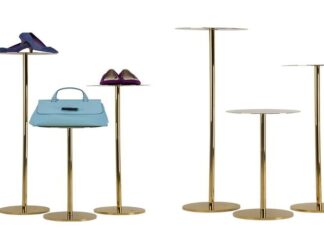- For consumers, “buy now, pay later” is often the gateway to purchases they can’t afford, but so far the kirana owners’ approach to the product has been business-driven and sensible
- The delinquency rate at ePayLater is 0.15%. Clearly, this credit innovation can be more sustainable when it finances livelihoods, and not just lifestyles
The neighborhood kirana store is the backbone of India’s $520 billion-a-year grocery market, accounting for 80% of sales. But the resources the industry needs to scale up and modernize have always been beyond its reach. Blame that on stunted access to working capital, a constraint on growth that’s finally starting to ease thanks to the coming together of mobile internet and finance, especially “buy now, pay later,” or BNPL.
In India, BNPL has found an additional — and perhaps more productive — application. Self-employed people, whose customers pay mostly in cash, have traditionally found it very hard to prove their creditworthiness to banks. Starting with Unilever in 1888, practically everyone who has tried to sell consumer goods in this large market has relied on distributors to overcome the problem. Apart from supplying goods to small shops and collecting cash from them, these middlemen have historically provided informal liquidity support to the kirana. Since the distributors themselves raise money by mortgaging their warehouses and homes, they ration financing, favoring store owners they know.
To be excluded from this narrow circle of trust has acted as an impossible hurdle for enterprising mom-and-pop outfits that want to expand. They can’t exactly swipe plastic to stock up, not when 85% of credit cards are with salaried individuals.
A part of the gap is being filled by new-age payment firms, which are weaning small stores off cash by encouraging them to use QR codes. Online transactions are growing rapidly. Customers shelled out 1.2 trillion rupees ($16.5 billion) to merchants over popular digital wallets like Walmart Inc.’s PhonePe, Alphabet Inc.’s Google Pay and homegrown Paytm in August, a threefold jump from a year earlier. Once it has captured this sales data, it’s easy for a startup like BharatPe to collect the principal and interest on collateral-free loans to retailers.
This is a welcome change, though it isn’t enough. The kirana also needs access to interest-free liquidity — just like distributors’ credit — but obtained via a formal channel that isn’t circumscribed by personal trust. Enter BNPL, a product that’s all the rage in consumer finance. That’s how Mumbai-based ePayLater also started out five years ago, giving people the flexibility to buy railway tickets on credit.
But ePayLater has pivoted to the retail industry, where rather than enabling excessive consumption, 14-day loans provide the ballast for stocking more inventory. “Everyone is chasing the ultimate consumer,” explains co-founder Aurko Bhattacharya. “But here was a business segment that deals so much in cash that it doesn’t have a paper trail to get credit from formal sources. It’s forced to remain informal.”














